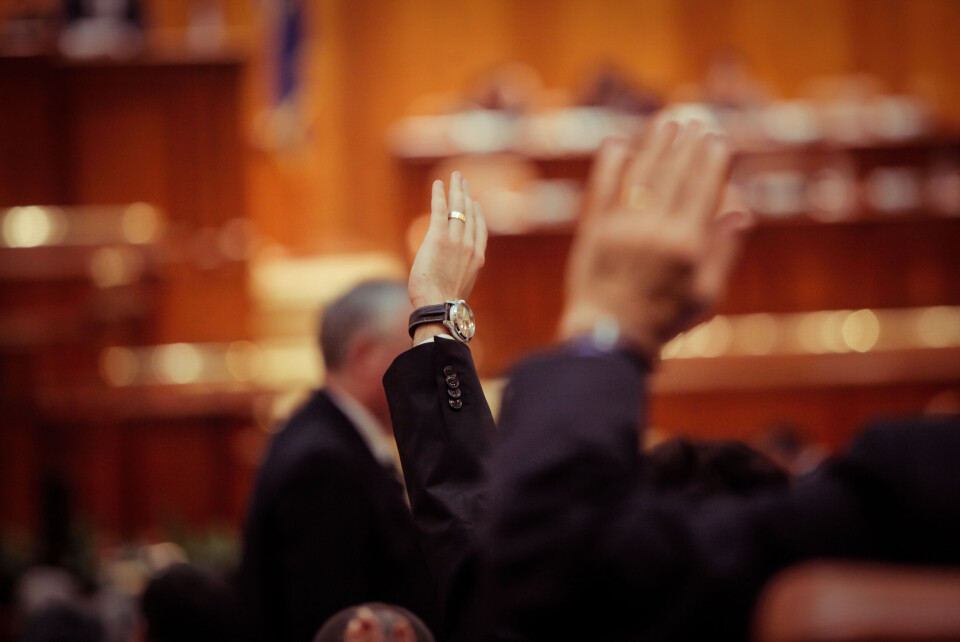-
Which French motorway toll subscription offers the best deal?
The ‘best’ packages vary depending on how often you use the road, the type of vehicle, and your destination
-
Alps avalanche risk remains high and 1,000 homes without power after heavy snow
Rail and road traffic disrupted but confinement order lifted for residents of Tignes in Savoie
-
Flights to and from France not expected to be affected by Gatwick Easter strike
Travellers are still advised to check their flight details this weekend
French MPs pass law to make gay conversion therapy illegal
It follows reports of ‘hundreds of recent cases’ using techniques including hypnosis, electric shocks and forced heterosexual marriage

A new law banning conversion therapies targeting gay, lesbian, bisexual and transgender people was passed by MPs in the Assemblée nationale yesterday (October 5).
The new law specifies that so-called “therapies” or religious practices that claim to “cure” homosexuality are illegal.
It defined these as “practices, behaviours or words aiming to modify or repress [someone’s] sexual orientation or identity, having an effect that alters their physical or mental health”.
Breaking the law would be punishable by two years in prison and a fine of €30,000, rising to three years in prison and a €45,000 fine in cases where the victim is a minor or a dependent.
MP says specific law needed to protect victims
When MPs Laurence Vanceunebrock and Bastien Lachaud first proposed the law to parliament in 2019 they said research had found “hundreds of recent cases” of conversion therapies being practised in France.
These used techniques including hypnosis, hormone therapy, electric shocks and religious-style practices such as calls for abstinence, ‘exorcism’, and forced heterosexual marriages.
Some of these practices are already illegal under laws against crimes such as violence, illegal use of medicine, and discrimination.
However, Ms Vanceunebrock said that a specific law recognising these in the context of gay conversion therapies was necessary due to the difficulties victims face in pressing charges, and to better measure the scale of the problem in France.
The law was passed by MPs unanimously with no amendments, and will now be transferred to the Senate for a second vote.
If passed, it should be introduced before the end of February 2022.
What are the key dates for gay rights in France?
1981: France says homosexuality is not a mental illness
France removes its signature from a 1968 World Health Organisation agreement classing homosexuality as a mental illness.
August 4, 1982: Homosexuality age of sexual majority
The Assemblée nationale put an end to the discrimination that gave sexual majority at 15 years to heterosexuals and at 21 years for homosexuals.
Police were no longer allowed to keep lists of homosexuals.
A second amendment ended aggravated indecent exposure laws specifically targeting homosexual acts.
This helped advance gay rights in other sectors, for example landlords were no longer allowed to evict tenants for being gay.
November 15, 1999: Pacs introduced for gay and straight couples
Civil marriage laws known as Pacs (le pacte civile de solidarité) were introduced in France, legally recognising unions between gay and straight couples.
This was in contrast to civil marriages available at the mairie, which only recognised heterosexual couples.
The Pacs gave gay and straight couples civil and legal recognition of their relationship, but not rights such as inheritance.
2012: Plans to legalise gay marriage
Socialist President François Holland promised to legalise gay marriage when he was elected in 2012, sparking protests.
The ‘Manif pour tous’ protestors opposed the legalisation of gay marriage, of giving gay people adoption rights and access to surrogacy, or to assisted reproduction technologies.
Each protest attracted hundreds of thousands of protestors in large cities in France.
April 23, 2013: Gay marriage legalised
The Assemblée nationale legalised gay marriage and gave same-sex couples the right to adopt in France.
A study from Insee found that 40,000 same-sex couples got married in France between mid-2013 to 2017.
June 24, 2021: Assisted reproduction technologies for all
The government passed a law giving access to assisted reproduction technologies to all women, not just those in heterosexual relationships experiencing difficulties conceiving.
This includes IVF, artificial insemination, embryo transfer and sperm, egg, embryo and germinal tissue freezing.
Related articles
‘We wanted to show women pastors (and lesbian ones) exist in France'
Family groups in France concerned over adoption law changes
























